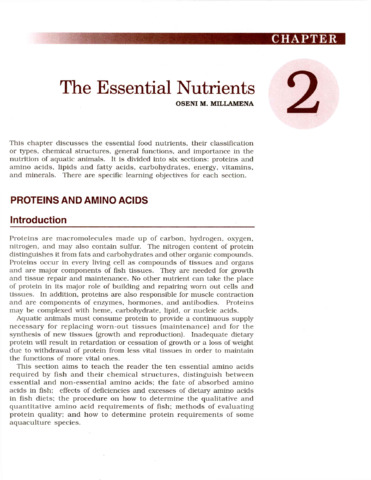GABA, 5-HT and amino acids in the rotifers Brachionus plicatilis and Brachionus rotundiformis
- Global styles
- MLA
- Vancouver
- Elsevier - Harvard
- APA
- Help
Share
Abstract
γ-Aminobutyric acid (GABA) and 5-hydroxytryptamine (5-HT) have been shown to increase the reproduction of the Brachionus plicatilis (NH3L strain). In the present study, the endogenous presence of GABA and 5-HT in the rotifers B. plicatilis (NH3L and Kamiura strains) and Brachionus rotundiformis (Langkawi strain) were confirmed by dot blot immunoassay and high-performance liquid chromatography (HPLC). HPLC showed that GABA and 5-HT concentrations in the three rotifer strains range from 71 to 188 pmol/mg and from 12 to 64 pmol/mg, respectively. A total of 33 amino acids were also detected in B. plicatilis and B. rotundiformis, with glutamic acid, serine, glycine, taurine, threonine, alanine, arginine, proline, valine and isoleucine in high concentrations relative to other amino acids.
Keywords
Amino acids Brachionus Dot blot immunoassay 5-HT GABA HPLC Neurotransmitters Rotifera SerotoninSuggested Citation
Gallardo, W. G., Hagiwara, A., Hara, K., Soyano, K., & Snell, T. W. (2000). GABA, 5-HT and amino acids in the rotifers Brachionus plicatilis and Brachionus rotundiformis. Comparative Biochemistry and Physiology - Part A: Molecular and Integrative Physiology , 127(3), 301-307. https://doi.org/10.1016/S1095-6433(00)00266-X
Type
ArticleISSN
1095-6433Collections
- Journal Articles [1262]
Related items
Showing items related by title, author, creator and subject.
-
Molecular cloning and localization of GABAA receptor-associated protein in the rotifer Brachionus plicatilis
Marcial, Helen S.; Suga, Koushirou; Kinoshita, Shigaheru; Kaneko, Gen; Hagiwara, Atsushi; Watabe, Shugo (Wiley-VCH Verlag, 2014)γ-Aminobutyric acid receptor type A-associated protein (GABARAP) and its homologs constitute a protein family found in many eukaryotes from yeast to human, and are known to be involved in intracellular membrane trafficking ... -
The essential nutrients: Proteins and amino acids
Millamena, Oseni M. (Aquaculture Department, Southeast Asian Fisheries Development Center, 2002)This section aims to teach the reader the ten essential amino acids required by fish and their chemical structures, distinguish between essential and non-essential amino acids; the fate of absorbed amino acids in fish; ... -
Pichia kudriavzevii as feed additive in Nile tilapia (Oreochromis niloticus) diet
Agpoon, Irish Emmanuel P.; Aya, Frolan ; Watanabe, Kenshi
; Watanabe, Kenshi  ; Bennett, Reuel M.; Aki, Tsunehiro
; Bennett, Reuel M.; Aki, Tsunehiro  ; Dedeles, Gina
; Dedeles, Gina  (Oxford University Press; Applied Microbiology International, 2024-06)
Yeasts are unicellular eukaryotic microorganisms extensively employed in various applications, notably as an alternative source of protein in feeds, owing to their nutritional benefits. Despite their potential, marine and ...
(Oxford University Press; Applied Microbiology International, 2024-06)
Yeasts are unicellular eukaryotic microorganisms extensively employed in various applications, notably as an alternative source of protein in feeds, owing to their nutritional benefits. Despite their potential, marine and ...





